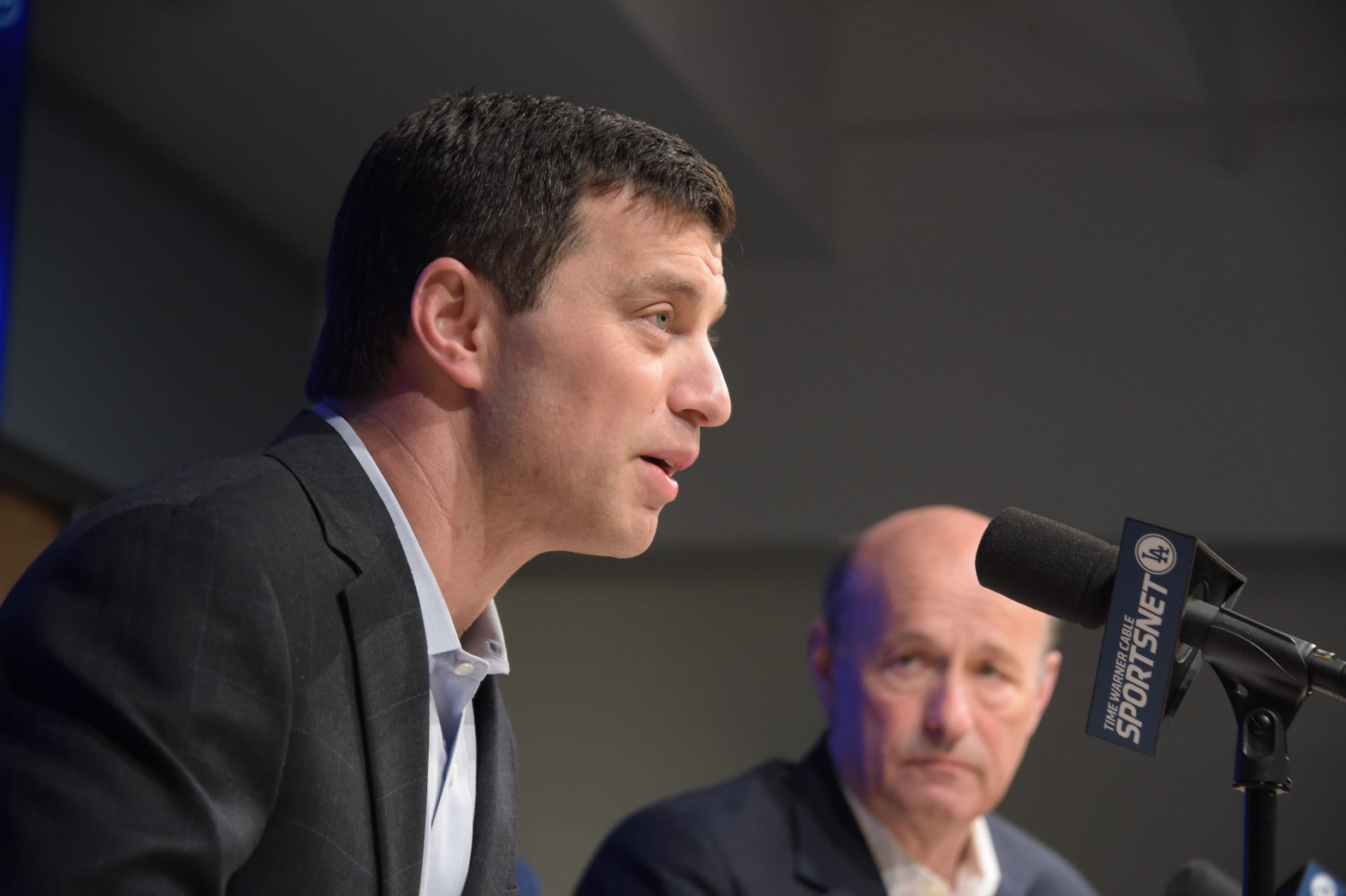When the Guggenheim group purchased the Los Angeles Dodgers they immediately were in the fans’ good graces simply by replacing the embattled Frank McCourt.
Also working in Guggenheim’s favor was former Los Angeles Lakers point guard Magic Johnson’s inclusion in the ownership group, and their hiring of Stan Kasten as president and CEO.
Kasten is credited for being the architect behind the Atlanta Braves winning 14 division titles and a World Series in 1995.
The backbone to Kasten’s success with Atlanta was drafting and developing prospects. It’s a vision he’s championed during his time with the Dodgers, and one team president of baseball operations Andrew Friedman has continued to carry out.
While the two executives appear to be on the same page, there were rumblings of friction between the Dodgers’ front office and ownership group. Kasten however, emphatically shot down that notion and dispelled other perceptions, via ESPN’s Mark Saxon:
Man, that is bizarre. I’ve read that a couple places this year and, please, put that all to rest. First of all, I have no hard and fast rules other than not having any hard and fast rules. I read I have a hard and fast rule not to sign guys beyond age 36. That’s b.s. When we made the trade with Boston or we traded for Hanley Ramirez or signed Andre Ethier, I said it was cool that none of them were signed beyond age 36, but it doesn’t mean it’s a hard and fast rule. Another thing was I don’t give pitchers more than five years. I think that’s a really good rule if it were one, but on the other hand, we have Clayton Kershaw here. It’s silly people would actually write that.
Kasten went on to clarify Friedman was not specifically told look beyond Dodgers director of player development Gabe Kapler when considering managerial candidates, and spoke highly of the relationship between the owners and front office:
I’ve also read that the front office was all set to hire one managerial candidate until ownership stepped in and made them have a deeper search. That is really bizarre. Where does this stuff come from? There were no other jobs open and we had all the time in the world to interview every possible candidate, which is what we did. It came down to the last two guys and our owners met those guys and we all collectively made the same decision. That was the first time the owners were involved at any stage of the search. Rift? I’ve never been in a situation that was more fun and more collegial. Our owners, by the way, speak the same language as our new front office, which wouldn’t be the case if they were just conventional baseball guys. We have wide-ranging, fascinating conversations. I don’t know where any of that is coming from. I really don’t.
Albeit to a lesser extent than Friedman, Kasten faces the challenge of getting the Dodgers over the proverbial hump without offsetting the work that’s been done for the club to remain competitive in years to come.
Between a failed trade for Cincinnati Reds closer Aroldis Chapman and a red flag with Hisashi Iwakuma’s physical, this offseason has brought a unique set of challenges that are unparallelled.






